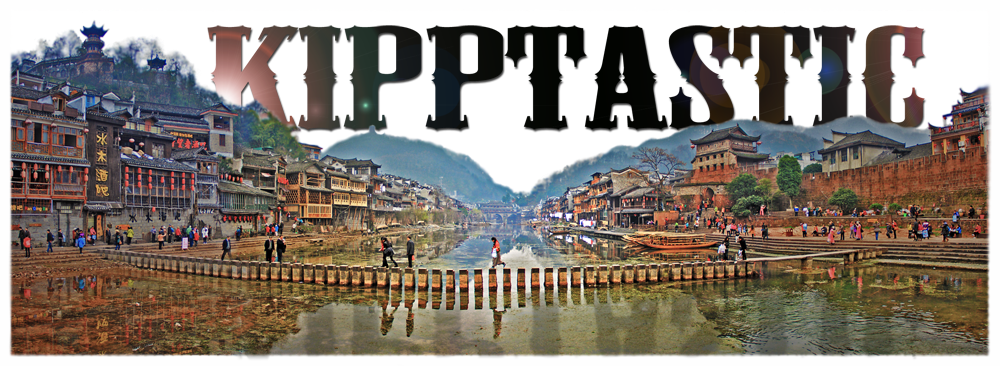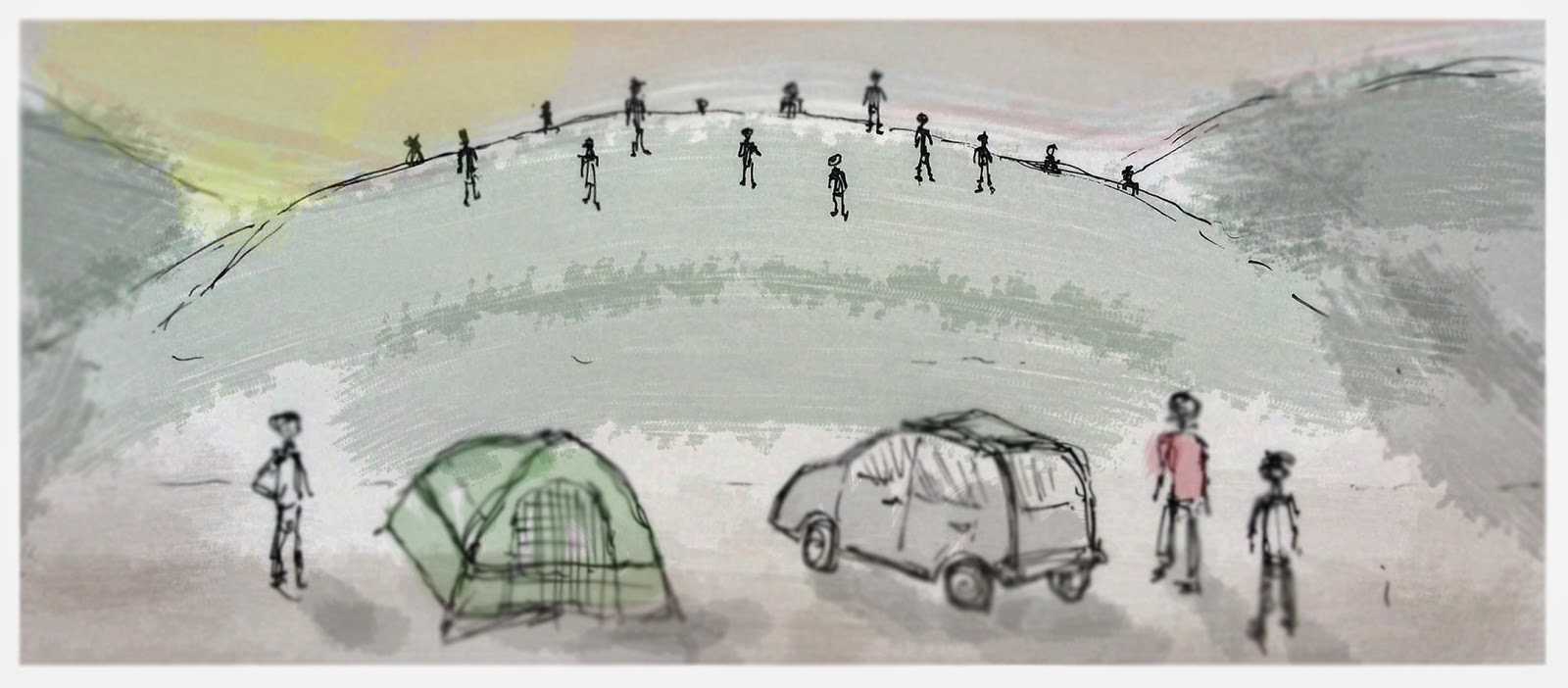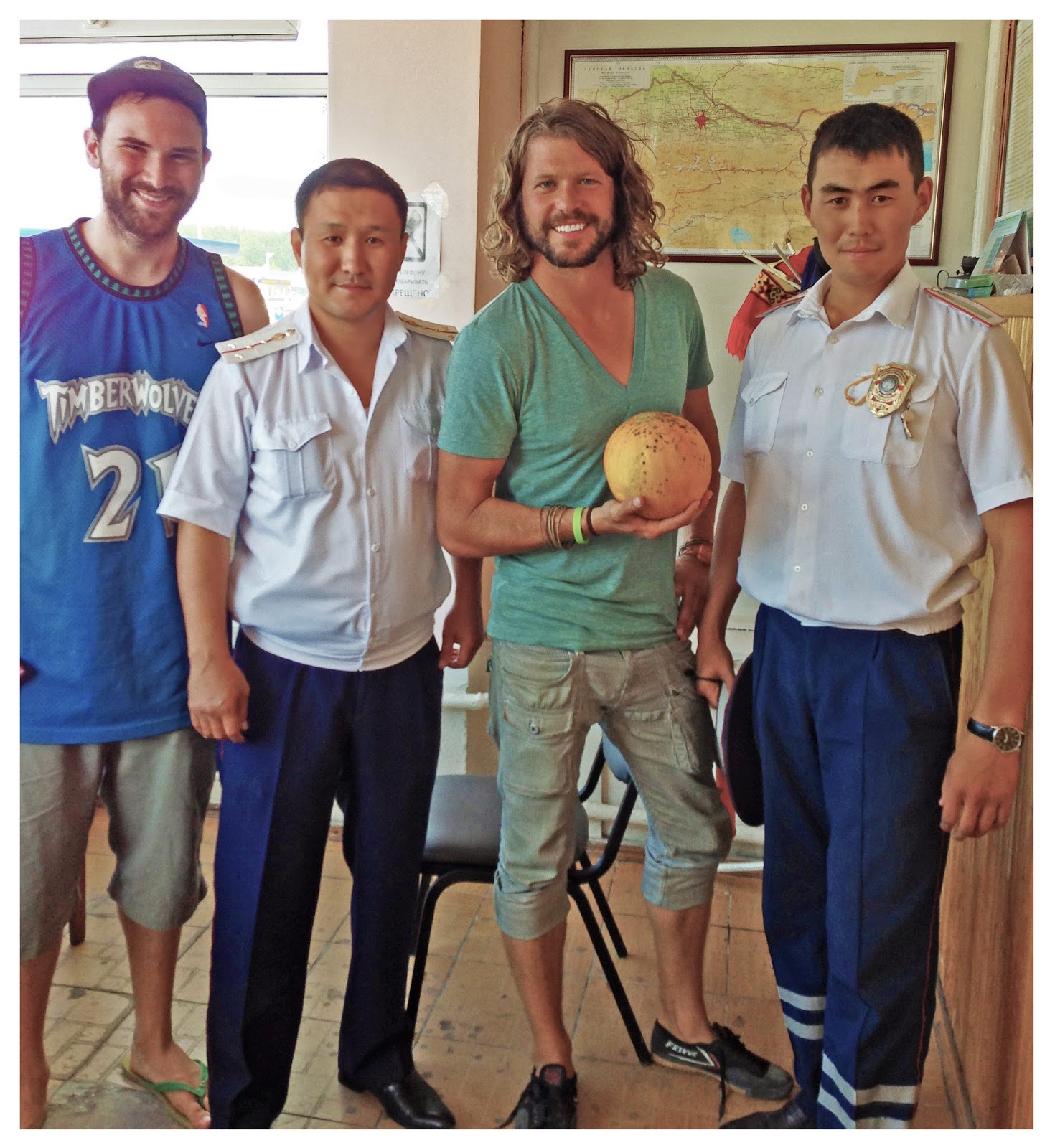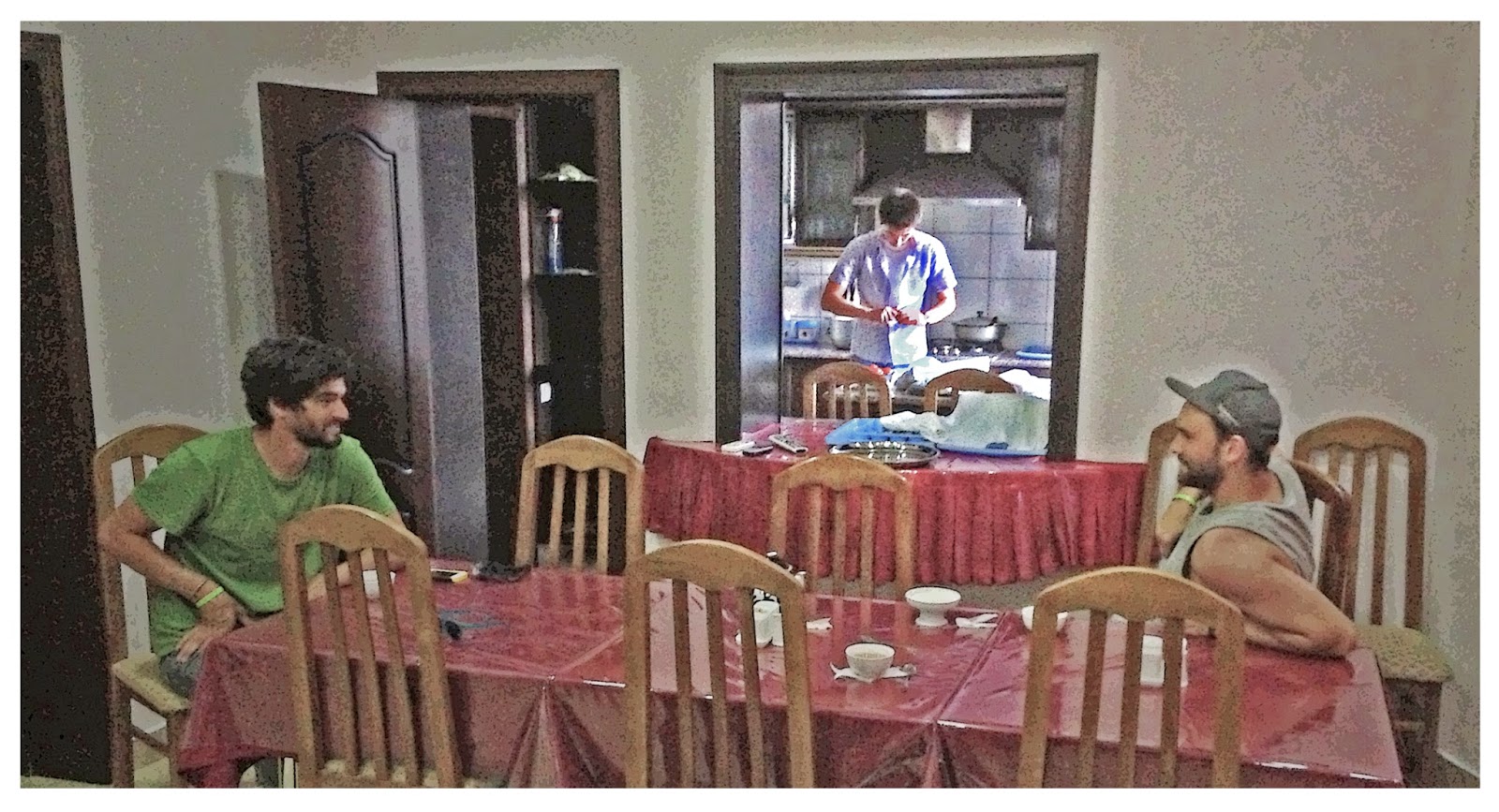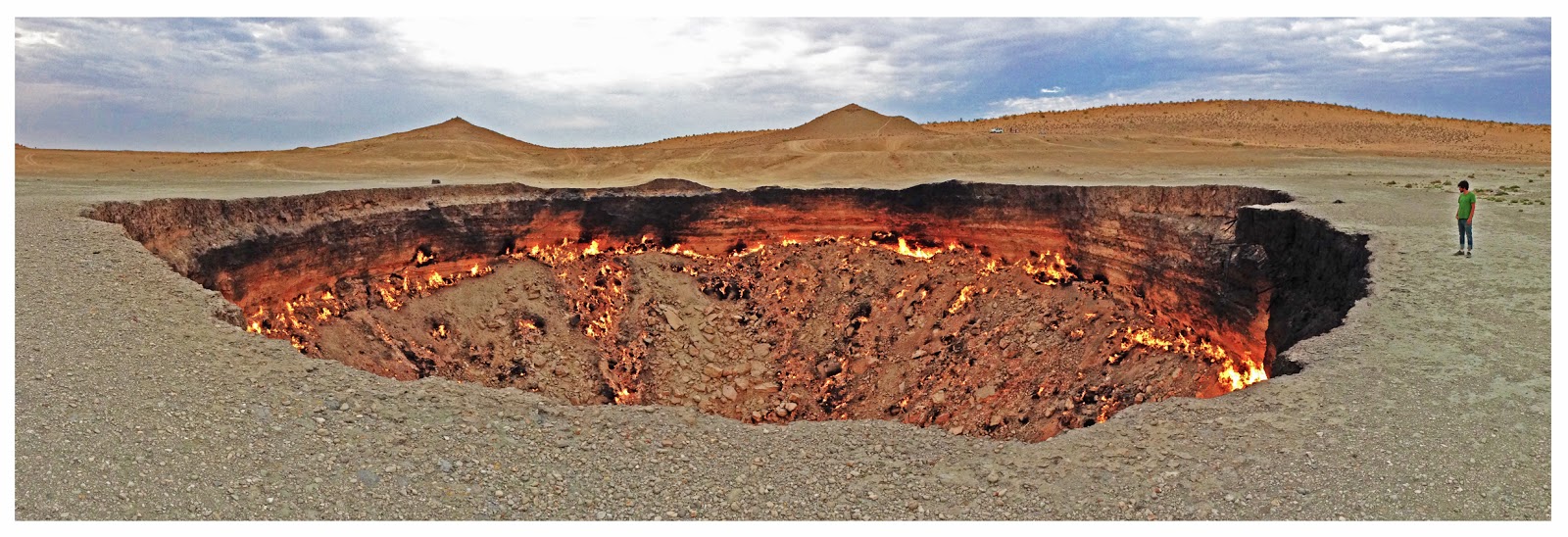The late afternoon sun was at our backs as we drove away from Khov'd. The packed-dirt road provided a straight shot across a parched valley, up and over some craggy hills, and back into a lonely desert. Bilge was waiting for us on a pass overlooking the town. We thought we'd seen the last of him, but he wasn't quite done with us. He was posted up by a solitary gazebo with a bottle of Chinggis Gold, and walked over to the roadside to wave us down as we approached. We could've blown right by, but decided we'd oblige, and stopped to join our new friend for another round of libations and broken philosophical ramblings...
We had woken up early that morning after camping by Tolbo Lake, roused by the cold and on the move by 6:30. The sun rose over the mountains to our left sending warm beams of light through the windows. A galaxy of glowing dust particles floated around the car, and I sprawled out in the backseat as we bounced along the earthen road. The landscape continued to impress, and we enjoyed the scenery as we moved along at snail's pace. It was the beginning of our second day in Mongolia, thirty-eight days into our trip - on the homestretch to Ulaanbaatar.

We passed through a small village and made our way into the mountains. Not long after that, another rally car appeared in the rear-view, trailing in the distance until we reached our first stream-crossing. The water was shallow and didn't look to be very menacing, but we stopped and got out to reconnoiter, wary of our car's puny character. The guys behind us didn't think twice. They came tearing along and splashed through without hesitation, leaving us in the dust and forcing us to question our mettle. But their undiscerning approach didn't work out so well on the next one. We caught up to them in a mountain meadow where the road disappeared into a muddy bog. They were stuck in the middle. After executing a successful ford, we backed up our little Hyundai and towed them out, and a car full of thankful Brits followed us down the road.

We caught up to five more teams at the next water-crossing. A staggered spread of cars had been stacking up at every obstacle, and after another successful traverse, we joined the motley convoy across the steppe. It was an amazing day of driving, packed with river-crossings (all of which we conquered) and continually stunning vistas. Camels dotted the terrain and young shepherds on horseback drove massive goat herds across the land. Mongolia was all that I had imagined - rugged, rustic, and beautiful.
The Buyant River splays out across an otherwise arid valley, and the town of Khov’d rests on its grassy banks. The convoy had all but dispersed by the time we arrived, but like Ulgii the day before, the streets were sprinkled with a disoriented flow of rally cars. We decided to treat ourselves to a decent meal, and found a nice sit-down restaurant in the middle of town.
And that’s when we met Bilge. He was hidden in a group of fellow ralliers - four boisterous Aussies sitting around a table of empty plates and vodka bottles. They waved us over, and not long after joining them we realized that Bilge was the instigator of the afternoon binge. But the Aussies needed an outlet, and only used us as an escape. It was a quick trade-off, us for them, and they ran off before Bilge could force anymore vodka down their throats.
So we ordered food, and Bilge ordered another bottle.
Bilge was a middle-aged man, proud of his Mongolian heritage, and eager to represent his country. He lived in Ulaanbaatar and was visiting Khov'd for work. He hinted at his wealth and explained that he sat at the top of a large natural resources and mining company. His English was limited, but his delivery was passionate, and he talked of Chingghis Khan, the Mongolian Empire, and his blunt dislike for China. He came strong with the vodka and was incessant on pouring shots. I'd committed to driving that evening and had to start covering my glass after the first few rounds, and consequently lost his respect as he questioned my manhood. But Derick and JP rolled with the punches, and the three of them went round for round. By late afternoon things started to get debaucherous at the dinner table, and when some nearby patrons asked Bilge to keep it down, he condescendingly snapped back at them. It was time to go.
Breaking free from Bilge was no easy task, he wanted us to stay and drink all night. We told him that we'd planned on camping, and that we needed gas and groceries before heading back into the desert, and he insisted on helping us run our errands. Bilge footed the bill and called his driver to come pick us up. His chauffeur arrived in a large SUV which felt like a spaceship compared to our little Hyundai, and he drove us down the street to a supermarket. After we stocked up on food, he dropped us off at our car, and had us follow him to a gas station on the outskirts of town. We thanked him as we filled our tank, and he abruptly drove away.

We left town on a lonesome road with a full tank of gas and an afternoon buzz. It was a straight shot into the desert, and we had all intentions of getting some good mileage in before stopping to camp. That is, until Bilge intercepted us on a mountain pass with a bottle of Chinggis Gold. More vodka. What a sneaky guy. It was a continuation of the rowdiness from the restaurant, except we were sitting at a sheltered concrete table on the side of a desert road. The gazebo sat next to a pull-off where people could park and walk up to a couple of ovoos situated atop some nearby hills. After a couple swills, I left Derick and JP with Bilge and the vodka and hiked up to check out the monuments.

An ovoo is a place of shaman worship. Built out of circular rock-piles and wood, they sit perched on hilltops throughout Mongolia. Those who wish to give thanks and praise to the surrounding environment, the mountains and the sky, visit an ovoo. Travelers also stop to pay tribute and leave offerings in hopes of a safe journey. There were two of them on neighboring hills, decorated with sheep skulls and strewn with shredded blue fabric that flapped in the warm desert breeze. I walked around them both, spun circles, listened to the wind, and took in the view. I looked down to where Derick and JP sat with Bilge, and across the valley to the town that we'd just left. I was feeling good, euphoric, my thoughts filtered by Chinggis Gold.
Just then I noticed a string of cars, a Mongol Rally convoy, coming up the road out of Khov'd. I stumbled down the hill just in time to get their attention, and they swerved off the road one-by-one as I waived them down. I realized I didn’t have an explanation as to why I pulled them over (except that it would give us an excuse to escape from Bilge), but no one cared, and within seconds the gazebo was surrounded and the bottle of Chinggis Gold was making the rounds. But the engines were still running, the hilltop hoopla was short lived, and the dust had barely settled before the caravan packed up and hit the road down the backside of the mountain. We gotta go, Bilge. Thanks for everything! We joined the eight-car convoy, and having been the last to say our goodbyes, brought up the rear as we cruised into the desert.
The sun sat low in the sky, almost touching the rocky horizon behind us, as the cars ahead kicked up a billow of golden-brown dust. The network of woven dirt tracks splayed out across the terrain as we came down off the mountain, and the single-file convoy began to spread as each team picked a line through the steppe. Engines revved and cars swerved to avoid earthen obstacles, but we moved along with haste, tearing through the twilight in a criss-crossing herd.
The mise en scéne was magnificent; the lighting, magical. And while the Mongol Rally is by no means a competition, I was overcome with a boost of moxie as I manned the wheel. It helped that I was being wildly encouraged by a drunken backseat cheerleader by the name of Derick. And, well, a punch of liquid confidence from the Chinggis Gold. So I charged ahead, aggressively shifting gears and navigating through the magic-hour maze of motoring madness. I was feeling it. In the zone. Floating through a moment that would eventually come to define my experience in the Mongol Rally. I zig-zagged through the entire pack, and was about to take pole position when the lead car smashed through a ditch off to the right. The front of the vehicle crunched against the earth, ripping off the bumper and flattening a tire.
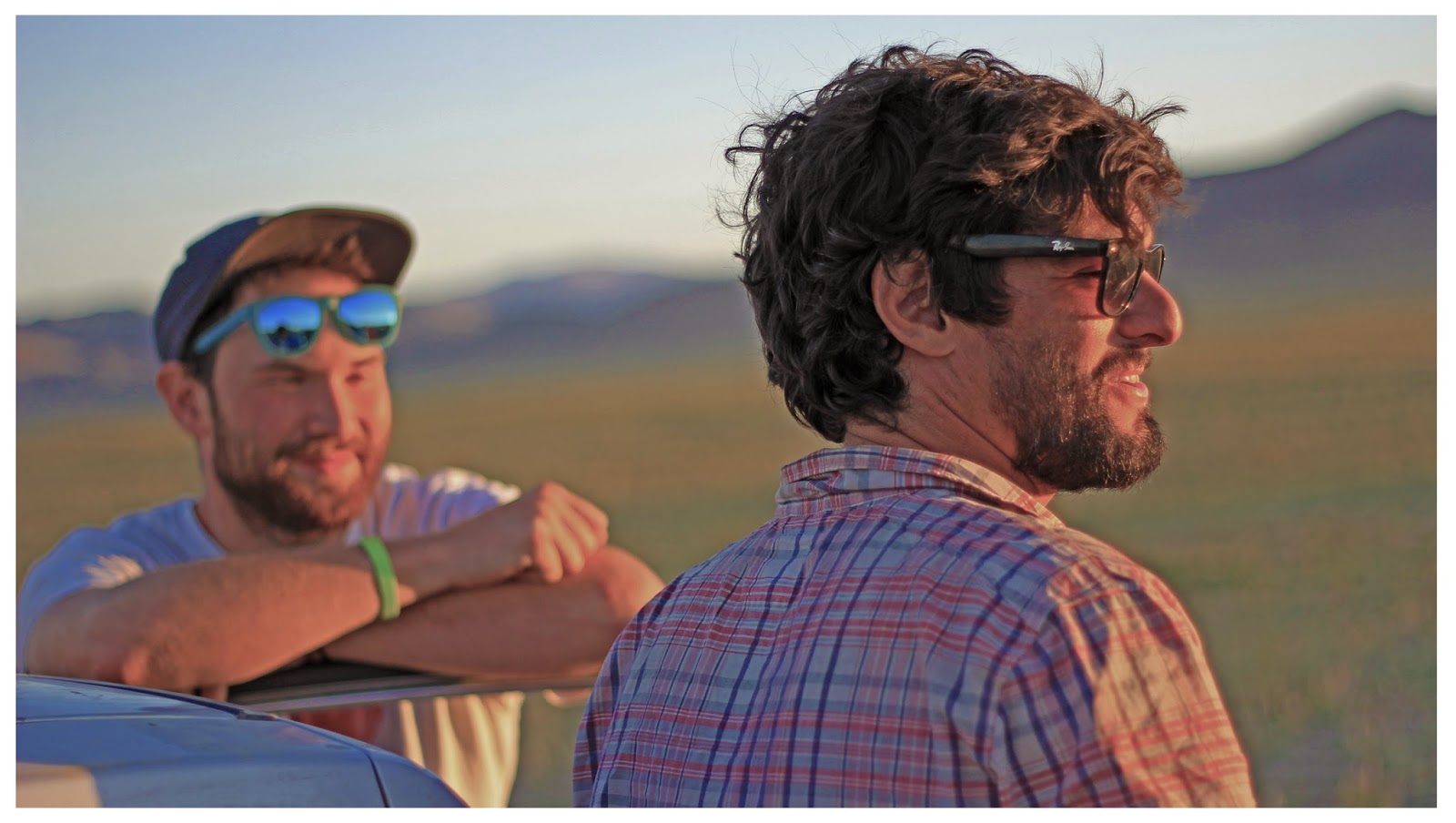
The convoy came to a halt. Luckily no one was hurt. People huddled around to check out the damage, lingering about as the crash victims prepared to fix their car. The sun was all but gone, shooting its last few beams of light across the desert. Still reeling after the Mad Max dash across the steppe, I coaxed Derick and JP back into the car for one last push before setting up camp.
More and more of Mongolia’s roads are getting paved, but it's sporadic. Along with the strips that lead in and out of towns, there are also random and isolated sections that don't seem to connect to anything. We hit one of them that evening, not long after leaving the convoy. It was slightly raised, but I found a way up and pulled the car onto a brand-spanking-new, straight-as-an-arrow stretch of road. It was flawless and fresh, as though it had been paved just for us. And it was smooth, oh-so-smooth! I looked out over the unobstructed runway, down a steady slope towards a majestic mountain range, and I f@$#in’ punched it! Pedal to the metal. 150 kilometers an hour. We were floating. And once I topped out I threw it into neutral and coasted. The windows were down and the wind blasted through the car in a muffled roar. Dusk had prevailed, and the sky was morphing into a heavy purple. When a full moon started its ascent into the heavens over the snowcapped peaks ahead, I couldn’t have asked for more...

Not long after turning on the headlights, we hit a roadblock, a massive mound of dirt across the tarmac - pretty common in Mongolia. It was getting dark so we decided it was a good sign that we should stop for the night. Eventually the rest of the convoy arrived. Eight cars lined up just off the road and set up camp under starry skies. Merriment ensued as we lit a bonfire and prepped food to be shared throughout the group.
Our second day in Mongolia had been epic to say the least. We’d come a long way since England, and only had a few more days left until Ulaanbaatar, but that day would stand out as a momentous chapter in our Mongol Rally.
